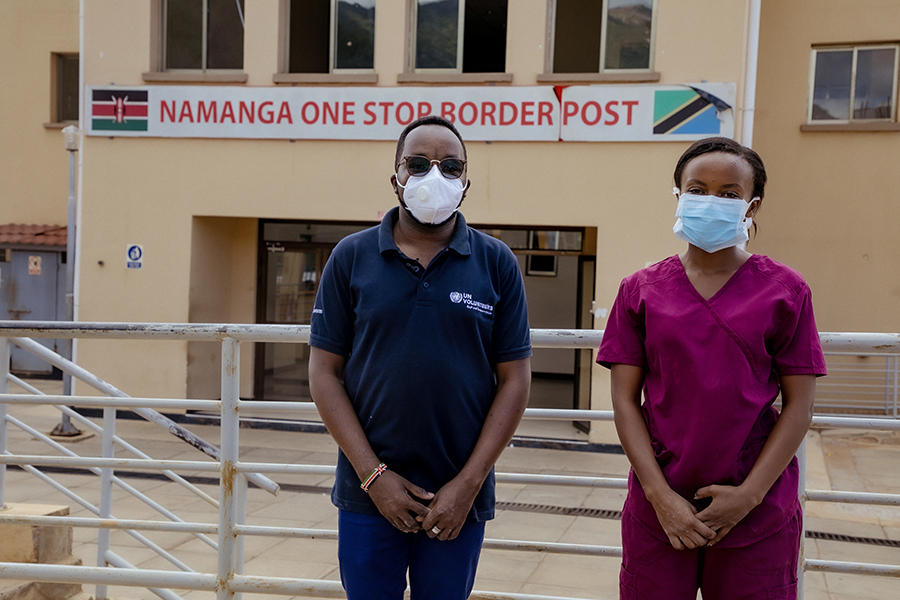The COVID-19 Response Programme aims to mitigate the spread and impact of COVID-19 by increasing the healthcare capacity system, building the resilience of vulnerable populations, bolstering social protections, and advocating for women's rights as part of the UN Joint Devolution Programme. Meet Caroline Njoki Kabaki, who served as a Laboratory Technologist in Kenya as part of the programme.
The COVID-19 Response Programme is jointly implemented by the UN Development Programme (UNDP), the UN Children's Fund (UNICEF) and UN Women. The programme is supported by the governments of Finland, Italy and Sweden with the consent to remobilize USD 3.1 million to respond to the pandemic in Kenya.
Caroline Njoki Kabaki, a Laboratory Technologist in Kajiado County, Kenya, was part of the 50 UNDP-deployed UN Volunteers health workers to respond to COVID-19 in 2020; they were attached to 14 most vulnerable counties across Kenya under the Consolidating and Deepening Devolution Programme. As part of the programme, Caroline worked as a Medical Laboratory Technologist and a UN health volunteer attached to the East Africa Community (EAC) Mobile Virology PCR Laboratory at the Namanga One Stop Border Post, Kajiado County.
Namanga is a cosmopolitan town situated at the border of Kenya and Tanzania and serves as an important transit point between Nairobi and Arusha. As a border entry point between the two countries, it is imperative to mass screen truck drivers at Namanga to curb cross-border COVID-19 transmissions.

The EAC coordinates to have truck drivers tested and certified at their points of origin before they depart, to keep the borders open and goods moving while ensuring that the citizens are protected.
In addition to that, the EAC Mobile Virology PCR Laboratory was set up to complement the existing laboratory network and strengthen the region's capacity to diagnose and respond to highly infectious diseases like Ebola and COVID-19. In collaboration with the German Development Bank and Bernhard Nocht Institute for Tropical Medicine, the lab screens truck drivers at the Border Post and processes samples referred from the many quarantine and isolation centers in Kajiado County.
I feel proud to be able to play my crucial part as a UNV and a Medical Laboratory specialist to support my community's wellbeing through the provision of timely and accurate diagnosis." --Caroline Njoki Kabaki, Former UN Volunteer Laboratory Technologist in Kajiado County, Kenya
With such efforts, the majority of the people in Namanga are aware and conscious of COVID-19 and hence wear masks and adhere to social distancing. It is encouraging to find restaurants and business premises requiring their clients to wear masks and wash hands at the entrance.
"What keeps me going is the knowledge that our daily work here and that of all UN health fast-responders to COVID-19 will indeed flatten the curve of transmission. I am grateful to UNDP, UNV, UNICEF, UN Women and our generous donors for giving us this platform to use our knowledge and skills to combat this pandemic. I am also grateful for having an amazing team of specialists to work with," added Caroline.

